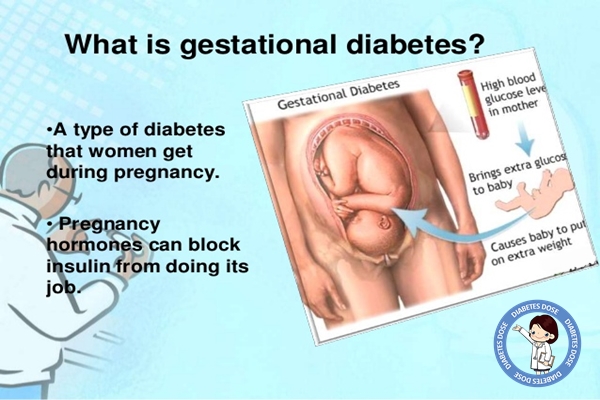Type 3 Diabetes (Gestational Diabetes) Causes, Signs & Symptoms, Effects, Prevention, Treatment, Home Remedies
If there is one disease that most of the adults are suffering from, it has to be diabetes. Although even kids are being affected by it too, the major suffering age group is mid aged people. We all know that there are 3 Types of Diabetes that are commonly diagnosed among people. The third type is only diagnosed in pregnant women and usually, affects around 4% of all those who are pregnant. Let’s see some more details about the Type 3 Diabetes or Gestational Diabetes (also Alzheimer’s Diabetes Type 3) as it is popularly known and find out what are its causes, symptoms, treatment, as well as home remedies.
What happens in Gestational Diabetes?
In Gestational Diabetes or Diabetes Type 3, a woman who has never been diagnosed with diabetes starts having high blood sugar levels during the time of her pregnancy. However, after the delivery, the blood sugar levels of most women come back to normal. You may also have a high risk of being diagnosed with Gestational Diabetes in future pregnancies. Moreover, you can also have any other type of diabetes in your life if you are diagnosed with Gestational Diabetes during pregnancy once.
Causes of Gestational Diabetes
For all those who imagine about what causes Gestational Diabetes, you must know that there is no single cause of this type. Let’s see some of the most common Gestational Diabetes causes:
- You are already obese before you become pregnant.
- Suffering from high blood pressure or other similar medical problems.
- Someone from your family suffered from diabetes.
- Your age is more than 30 when you become pregnant.
Signs and Symptoms of Gestational Diabetes
It is always better to know the diabetes symptoms which can help you to detect the disease in case your body shows any such signs. You will be surprised to know that there are no signs and symptoms of Gestational Diabetes during pregnancy. Although a woman goes through a lot of bodily changes during the time, the biggest disadvantage of the disease is that you will not find a single Gestational Diabetes signs and symptoms.
Due to such reasons, all the pregnant women are asked to go through a blood sugar level test to diagnose whether they are suffering from the disease or not. Most probably, the tests are conducted between the 24th and 28th week of pregnancy. If you are expecting a baby, it is highly necessary that you check yourself for your body sugar level. Even though Gestational Diabetes symptoms are absent, you should ensure tests to be on a safer side.
Gestational Diabetes Complications
The reason why a lot of doctors insist on getting checked yourself for Gestational Diabetes is that if you don’t treat it, the disease can create a lot of medical complications for your baby. Some of them are listed below:
- Your baby may grow too large inside your womb which can be very problematic.
- During delivery, there can be injuries to limbs, shoulders, and nerves due to the baby’s big size.
- You may have to go through a cesarean delivery because a normal delivery won’t be feasible.
- Just after the birth, your baby may suffer from low blood sugar levels which would have to be treated.
- Your newborn baby will have a higher risk of developing jaundice and may also have breathing problems.
Prevention of Gestational Diabetes
Although there is very little what you can do for Gestational Diabetes prevention but there are a few changes in your lifestyle that you can bring which are as follows:
- Completely quit smoking if you have a habit of smoking.
- Indulge in a moderate physical exercise which is said to have some effects on preventing Gestational Diabetes.
- Being fit and maintaining an active lifestyle will also help in keeping your blood sugar levels in check.
Treatment of Gestational Diabetes
Just like all the other types of diabetes, Gestational Diabetes treatment is possible with proper medical and health care. Below are the things you can do for treatment of Gestational Diabetes.
- Follow a Gestational Diabetes diet which your dietician or doctor may guide you with.
- You must keep monitoring your blood sugar level on a frequent basis to ensure better treatment through medication.
- In case diet or normal medications don’t seem to work, you may have to go for insulin therapy which is effective for Type 3 Diabetes treatment.
Home Remedies of Gestational Diabetes
Since there are no signs and symptoms of Type 3 Diabetes mellitus, you may have a high chance of being diagnosed with it. But you must not worry as along with medication there are many home remedies which can be effective in treating Gestational Diabetes. They are as follows:
- The best way to take care of yourself would be to consume regular meals at the same intervals every day.
- Stop consuming carbohydrates that don’t have proteins or fats in them.
- Indulge in moderate amounts of exercise at least 30 minutes for each day. It can be as simple as walking with a normal speed.


This is a good diet plan.